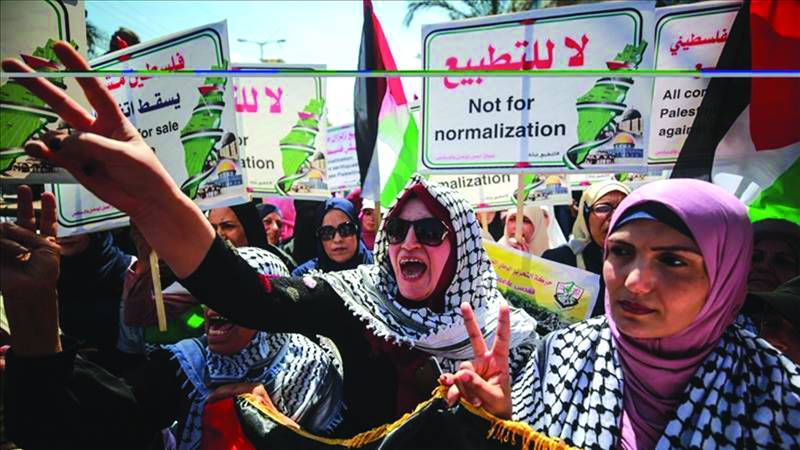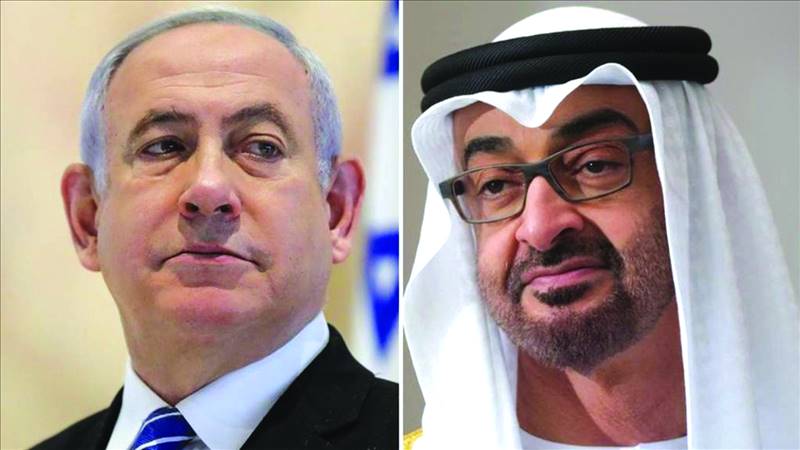
The Middle East has long struggled to achieve regional harmony and connectivity, mainly because of religious and ideological differences among the states of this region. The significance of this region is that it consists of states that have a strong influence over the world. Saudi Arabia, which is the major regional power of the Middle East, has been one of the main partners of the U.S since the petrodollar system kicked off. The Kingdom of Saudi Arabia, run by the Al-Saud family, is still following the pattern of a traditional absolute monarchy. It is considered to be the most important Kingdom of the world economically and because of its geostrategic location, it has huge reserves of critical resources, most important of which is oil. Its location also plays a role in making this country strategically very significant as it borders the two strategically important sea routes the Persian Gulf and the Red Sea. The oil resources of Saudi Arabia have elevated the status of the country, making it an economic and financial power globally. Although the country has built good diplomatic relations with the U.S – even if it seems as if these relations have only been beneficial for Saudi Arabia itself, not its regional neighbors.
Yet Saudi preponderance has proved both divisive and incapable of addressing the major strategic questions of the region. The Arab-Israel conflict, above all, has not yet been resolved: the people of Palestine still dare hope for a just outcome as their suffering continues.
A major development took place in the past few weeks as the peace agreement between the UAE and Israel is now being fully implemented: leading to recognition of the latter by the former. In fact, the UAE agreed to normalize relations with Israel and start economic trade with a country that was formed by denying the right to self-determination of the Palestinian Arabs. Today, at the cost of innocent lives, major powers of the world are building and normalizing relations with the same country over which all Arab states were once on the same page. This suggests that economic imperatives are the first priority in the region, much as in the rest of the world.

The peace agreement between the two countries marks the first agreement between Arabs and Israelis since 1994: the process of rapprochement which started years ago has now produced a meaningful result. This agreement was facilitated by US and will surely strengthen ties between the US and the UAE. This strengthening of bilateral relations and the UAE openly proclaiming its alliance with Israel is a major developments as it will affect the future diplomatic ties between the Middle Eastern countries themselves and their relations with Israel. Saudi Arabia has remained quite over this agreement but the Kingdom’s conflict with Iran and close relations with the US should indicate which way the winds are likely to blow in the uncertain near-future.
In general, the growing disinterest of the Arab states towards Palestine since the past few years is due primarily to their inclination for building up their economy and establishing ties with major powers around the world. This realist picture might be bitter but reveals the true interests of states, which require them to take actions that are selfish. US President Trump calling this specific agreement “the deal of century” shows the real value of the arrangement for all the three concerned parties. It can be considered a diplomatic victory of Donald Trump as the US will now have a stronger influence over the political and economic development of this region, with Israel gaining as a result.
A rapprochement between the Arab states and Israel was desired for a long time by the US. The most important provision which kept this agreement on hold for years was of Jerusalem’s annexation with the West Bank – which has for now been put aside and delayed as it would have complicated the process of rapprochement. The timing of this agreement between the two countries is significantly important to the government of Donald Trump as US elections are just around the corner and the President is already receiving backlash from Democrats can now point to an agreement which was not expected to happen so ‘easily’.
Now, the outlook for the long Palestine-Israel conflict will change yet again – at the cost of the Palestinians. Being the poor side in the conflict, Palestine has already been suffering a lot: the catastrophic condition of the Palestinian territories coupled with their political and economic instability has made it difficult to fight back. Now, Palestine losing the support of yet more Arab states has made its position much worse and the conflict more complex. Other Arab states have not yet clarified their stance on this agreement but it is likely to transform entirely the dynamics of the future political and diplomatic development of the region.
The Middle East is not only beset by political differences, but ideological and religious rifts as well. This paved the way for international powers to interfere in the region constantly. The condition of Iraq is still particularly unstable, as it has not been able to get back up from ashes resulting from a long war. The region has been affected by religious fundamentalism, sectarianism and the rise of violent armed groups – which reached new heights with the emergence of the Islamic State (ISIS) group.
Iraq and Syria have gone through a lot of damage from this constant warfare. Rehabilitation efforts are scant and innocent people still suffer in trying to fulfill their basic needs.
What we now see in the Middle East is the open embrace of a Realist argument which advocates states being selfish for their interests and prioritizing their own gains above all other considerations. While some of the powers in the region continue to build their economies and enjoy their privileged position in the regional and world system, others still struggle to normalize circumstances and get out of the devastation wrought by warfare and state collapse.
Yet Saudi preponderance has proved both divisive and incapable of addressing the major strategic questions of the region. The Arab-Israel conflict, above all, has not yet been resolved: the people of Palestine still dare hope for a just outcome as their suffering continues.
A major development took place in the past few weeks as the peace agreement between the UAE and Israel is now being fully implemented: leading to recognition of the latter by the former. In fact, the UAE agreed to normalize relations with Israel and start economic trade with a country that was formed by denying the right to self-determination of the Palestinian Arabs. Today, at the cost of innocent lives, major powers of the world are building and normalizing relations with the same country over which all Arab states were once on the same page. This suggests that economic imperatives are the first priority in the region, much as in the rest of the world.

The peace agreement between the two countries marks the first agreement between Arabs and Israelis since 1994: the process of rapprochement which started years ago has now produced a meaningful result. This agreement was facilitated by US and will surely strengthen ties between the US and the UAE. This strengthening of bilateral relations and the UAE openly proclaiming its alliance with Israel is a major developments as it will affect the future diplomatic ties between the Middle Eastern countries themselves and their relations with Israel. Saudi Arabia has remained quite over this agreement but the Kingdom’s conflict with Iran and close relations with the US should indicate which way the winds are likely to blow in the uncertain near-future.
Other Arab states have not yet clarified their stance on this agreement but it is likely to transform entirely the dynamics of the future political and diplomatic development of the region
In general, the growing disinterest of the Arab states towards Palestine since the past few years is due primarily to their inclination for building up their economy and establishing ties with major powers around the world. This realist picture might be bitter but reveals the true interests of states, which require them to take actions that are selfish. US President Trump calling this specific agreement “the deal of century” shows the real value of the arrangement for all the three concerned parties. It can be considered a diplomatic victory of Donald Trump as the US will now have a stronger influence over the political and economic development of this region, with Israel gaining as a result.
A rapprochement between the Arab states and Israel was desired for a long time by the US. The most important provision which kept this agreement on hold for years was of Jerusalem’s annexation with the West Bank – which has for now been put aside and delayed as it would have complicated the process of rapprochement. The timing of this agreement between the two countries is significantly important to the government of Donald Trump as US elections are just around the corner and the President is already receiving backlash from Democrats can now point to an agreement which was not expected to happen so ‘easily’.
Now, the outlook for the long Palestine-Israel conflict will change yet again – at the cost of the Palestinians. Being the poor side in the conflict, Palestine has already been suffering a lot: the catastrophic condition of the Palestinian territories coupled with their political and economic instability has made it difficult to fight back. Now, Palestine losing the support of yet more Arab states has made its position much worse and the conflict more complex. Other Arab states have not yet clarified their stance on this agreement but it is likely to transform entirely the dynamics of the future political and diplomatic development of the region.
The Middle East is not only beset by political differences, but ideological and religious rifts as well. This paved the way for international powers to interfere in the region constantly. The condition of Iraq is still particularly unstable, as it has not been able to get back up from ashes resulting from a long war. The region has been affected by religious fundamentalism, sectarianism and the rise of violent armed groups – which reached new heights with the emergence of the Islamic State (ISIS) group.
Iraq and Syria have gone through a lot of damage from this constant warfare. Rehabilitation efforts are scant and innocent people still suffer in trying to fulfill their basic needs.
What we now see in the Middle East is the open embrace of a Realist argument which advocates states being selfish for their interests and prioritizing their own gains above all other considerations. While some of the powers in the region continue to build their economies and enjoy their privileged position in the regional and world system, others still struggle to normalize circumstances and get out of the devastation wrought by warfare and state collapse.

